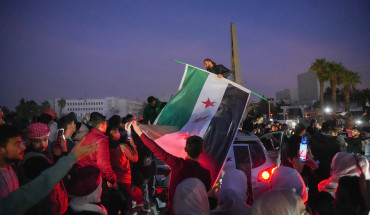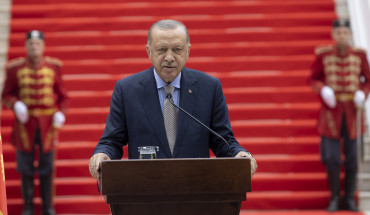Prior to the outbreak of protests in Daraa in 2011, media in Syria was state-controlled and heavily regulated. However, in the face of escalating conflict with the Assad regime, independent media outlets emerged that gave voice to Syrian journalists and civil society activists sharing information domestically and to an international audience. Although these new outlets provided hope as state authority weakened, in the seven years since the outbreak of war, journalists attempting to share their stories from within Syria face daunting challenges including uncertain security, difficulty in verifying sources and the absence of a reaction from international audiences.
How has the emergence of independent media in Syria empowered diverse perspectives on political developments from within? How are Syrian journalists overcoming governmental crackdown, humanitarian devastation and a seemingly apathetic international community? How can international audiences support the work of Syrian media to mobilize humanitarian support and action in Syria?
The Middle East Institute (MEI) is pleased to host a panel discussion to examine these issues. Rania Abouzeid, author of No Turning Back: Stories of Life, Loss, and Hope in Wartime Syria will be joined by MEI Scholar and Syrian Activist Ibrahim al-Assil and MEI's director for public relations, Antoun Issa, to dicuss the important role of Syria's independent media. The Atlantic's Uri Friedman will moderate the discussion.
Speaker biographies:
Rania Abouzeid
Author, No Turning Back: Stories of Life, Loss, and Hope in Wartime Syria
Rania Abouzeid won the Michael Kelly Award and George Polk Award for foreign reporting, among many other prizes for international journalism. She has written for The New Yorker, Time, Foreign Affairs, Politico, the Guardian, and the Los Angeles Times. A former New America fellow, she lives in Beirut, Lebanon.
Ibrahim al-Assil
MEI fellow and co-founder of the Syrian Non-Violence Movement
Ibrahim al-Assil is a Syrian political analyst and civil society activist and serves as a resident fellow at the Middle East Institute. He is also a non-resident fellow at the Orient Research Center in Dubai. His work focuses on the Syrian conflict with an emphasis on different aspects of security, civil society, political Islam, and political economy. Assil is the president and a co-founder of the Syrian Nonviolence Movement, an NGO formed in 2011 to promote peaceful struggle and civil resistance as a way to achieve social, cultural, and political change in Syrian government and society. In 2013-2014, he frequently visited northern Syria, where he lead an initiative to train Syrian activists about strategic planning and project management and conducted studies on the current status and potential role civil society plays in northern Syria. Assil is an avid blogger and has been published in a variety of media outlets. Also, he was chosen by the Swedish Institute in 2013 as a young leader from the MENA region.
Antoun Issa
Director of public relations, MEI; author, “Syria’s new media landscape”
Antoun Issa has been a journalist and commentator on Middle Eastern affairs for six years, having previously worked as the Beirut-based News Editor for Al-Monitor. His work has mostly focused on the Levant and regional geopolitics. He has also written for a number of media outlets, including The Guardian, Foreign Policy, The National, The Huffington Post, and ABC (Australia), and appeared on a number of broadcast networks, including Al Jazeera English, HuffPost Live, BBC, and ABC (Australia). He holds a Masters in international affairs from the Australian National University and a Bachelors in media studies from LaTrobe University.
Uri Friedman, Moderator
Staff writer, The Atlantic
Uri Friedman is a staff writer at The Atlantic magazine, where he covers U.S. foreign policy and has written extensively about the Syrian civil war. He was previously the editor of The Atlantic's Global section and the deputy managing editor at Foreign Policy magazine.











